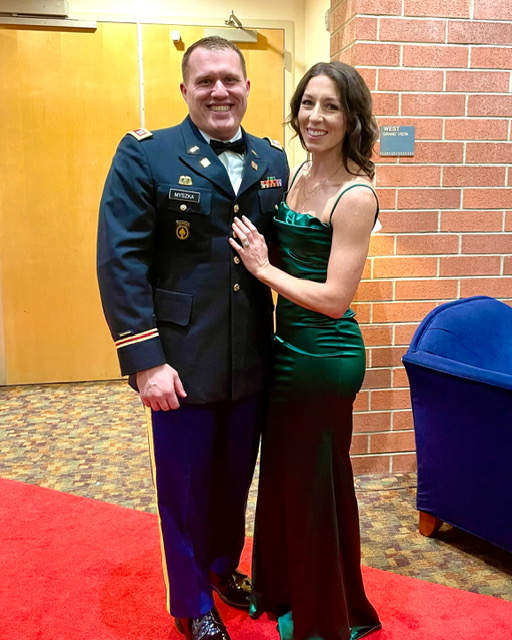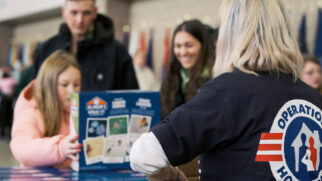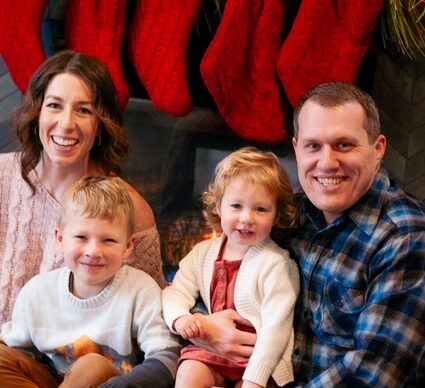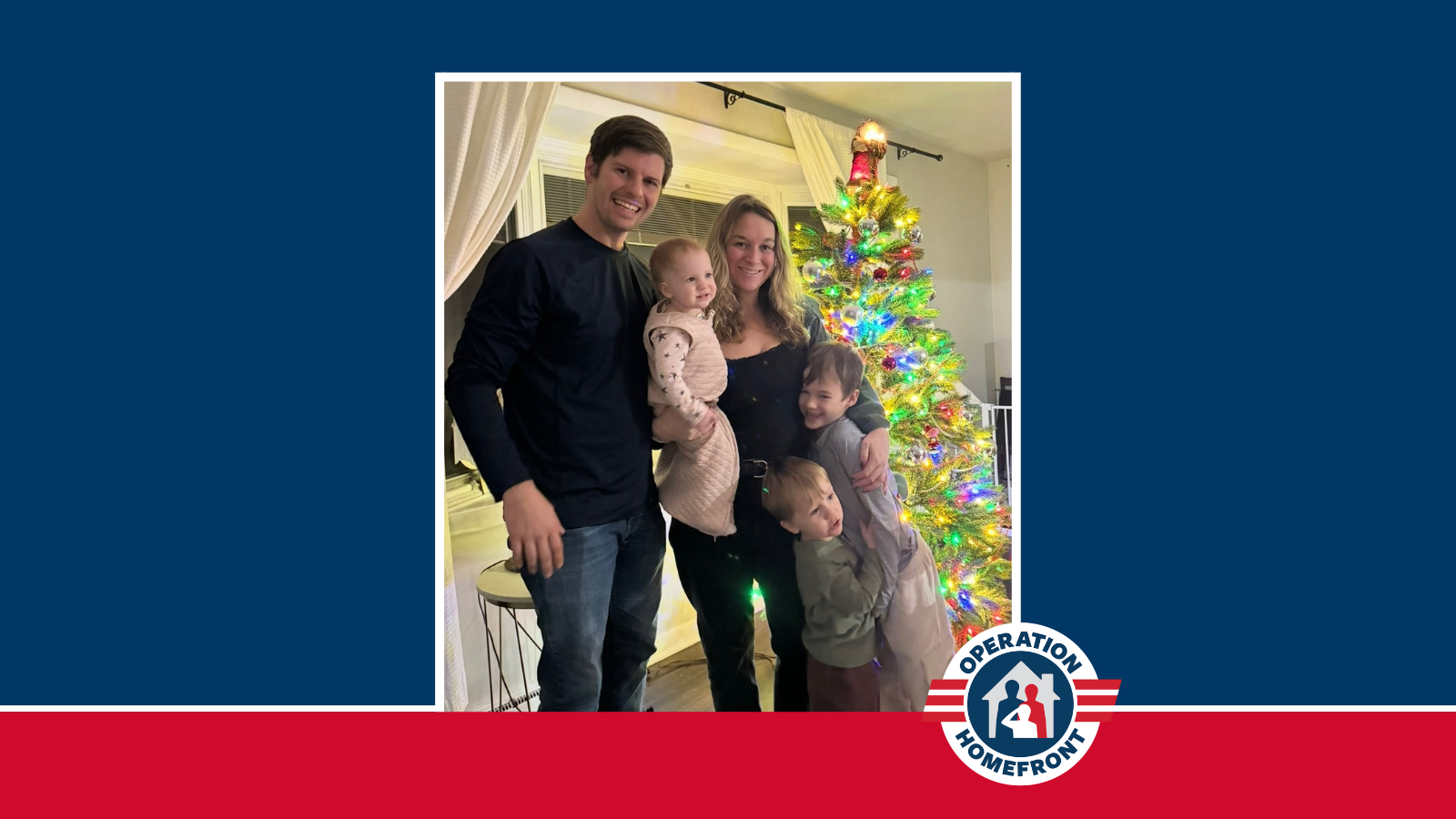As a Military Family, We Find Community Wherever We Call Home
I grew up in a rural town of around 1,000 people in Northeast Wisconsin. I walked the same elementary school halls my father did, knew the names of each grocery store cashier, and attended the same fireworks show each Fourth of July. For me, a sense of belonging was inherent. It was home, and, in a way, I suppose it always will be.
I now live 1,700 miles away from there. My husband is a full-time Army Reservist, and together, we’re raising two children, who, in their six and two years of life, have already known three different homes. While we do our best to fully immerse ourselves in each duty station, I’ve learned there’s a distinct difference between being and belonging in a community.
Results from the 2023 Blue Star Families Military Family Lifestyle Survey, released in March 2024, show that active-duty respondents who feel a sense of belonging to their local civilian community report greater well-being than those who don’t share that connection.

While that finding may seem like a given, military families, who, on average, move every 2½ years, will tell you that putting roots down only to be transplanted shortly thereafter can feel a lot like running on the proverbial hamster wheel. Nevertheless, finding or creating community is not just a desire. It’s a necessity, and there’s no one-size-fits-all approach.
Some may find belonging by connecting with the local spouse or family readiness group, sharing a meal with a neighbor, or joining a local class or team that aligns with their interests. Our family’s circumstances are a little more unique because we’re not always located near a major installation. That makes finding others who can identify with our lifestyle more challenging. In these cases, we’ve leaned on church groups and neighborhood social media pages to meet others. Oftentimes, introducing ourselves as a military family and explaining our transient nature opens the doorway to conversation and connection. This social integration is our small effort to narrow the military-civilian divide and advocate locally for the next military family that may follow on after us.
Of course, technology also helps us maintain close relationships despite physical distance. Social media and other apps allow us to share experiences and offer support no matter how far we are from our loved ones. We’ve celebrated birthdays, cheered on first steps, and cried happy and sad tears all the while wishing we could reach our arms through FaceTime and into the homes of those we love. While nothing can replace face-to-face interaction, technology helps bridge the gap and ensures that we remain connected to our networks, even from afar.
In a life marked by constant change, it’s easy to feel like you’re sitting on the sidelines of your life. But we’ve made the choice to really establish ourselves, however temporarily, at each duty station. Whether it’s taking advantage of educational opportunities, recreational activities, or cultural immersion, we become invested in the people and place, taking some of it with us and leaving a part of ourselves behind with every move.
For us, finding community in the military is a grounding mechanism and a tether to greater purpose. When life goes sideways (and as a military family, life will sometimes go sideways), it’s knowing there are people in your corner you can count on- someone who will drive your kids to school or sit with you in heavy silence- and a chance to demonstrate that same support and empathy for someone else. From a spiritual perspective, it’s a cyclical reminder that we have one shot at the human experience and what a wild, tender privilege it is to get to know the world in this way – its cultures, landscapes, and opportunities.
Military families deserve more credit for their tenacity and willingness to rebuild their “village” time and again, knowing new orders will be in hand all too soon. It takes real effort and intentionality but pays out with a sense of belonging and connection that is essential for thriving in the face of the unique challenges that military life presents. Beyond that, it contributes to the strength and cohesion of the places they inhabit.
Growing up, “community” was where you were from and the people who were there alongside you. If that’s still the case, we consider ourselves lucky. Our community is vast and still growing. Its people are steadfast and kind, selfless and gritty. Military families may not be “from” any place in particular, but it’s that exact experience that lends itself to the unique and enduring bonds that enrich our lives and shape our collective journey.




